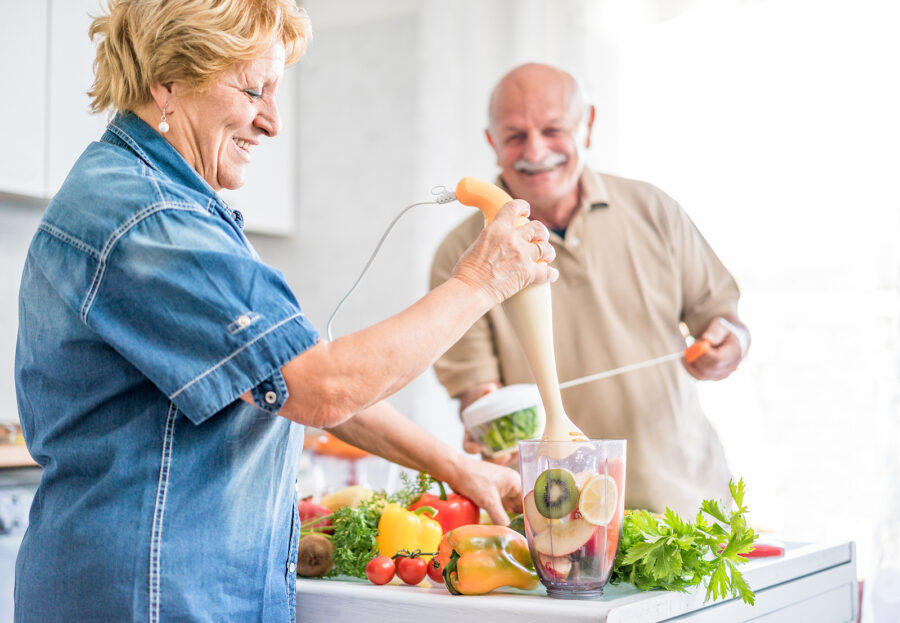May 8, 2024

Fruits and vegetables, which are abundant in fiber, antioxidants, and critical nutrients, are among the most important parts of a balanced diet. Unfortunately, it might not be easy for seniors to know if they are getting enough of these nutrient-dense foods. At the same time, seniors who’ve never focused on fruits and vegetables may not even know where to start. Another stumbling block occurs for seniors with
changing taste preferences, dental problems, or limited mobility. The good news is that seniors with elder care by their side don’t have to figure it out on their own.
Elder care can assist seniors in trying out a broad spectrum of fruits and vegetables. Every variety provides a distinct blend of nutrients and tastes. To keep meals tasty and interesting, they can be encouraged to experiment with different hues, textures, and cooking techniques. Also, by trying different techniques, seniors might realize that while they don’t care for raw carrots, they do like them when they’re cooked.
Convenience is important to many seniors, especially those with restricted dexterity or mobility. In these situations, pre-cut and pre-packaged fruits and vegetables can simplify and ease the process of preparing meals. Elder care can also introduce seniors to frozen produce, which has a longer shelf life and is just as nutrient-dense as fresh.
Adding fruits and veggies to meals might be easier when they’re blended into the meals and not front and center. This can help seniors get over their first reactions to trying them. For instance, elder care can add chopped fruits to smoothies or vegetables to soups, stews, and casseroles. Additional nutrition can be added to meatloaf or pasta sauce by including grated vegetables, all while maintaining flavor. This might also bypass any issues seniors have with texture.
Elder care can encourage seniors to explore new culinary techniques by showcasing fruits and vegetables as the main ingredients in new recipes. There are tons of tasty ways to include these items in meals. Such as stir-fries, fruit salads, and roasted vegetable medleys. Along with encouraging wholesome eating habits, cooking together may also be fun for seniors. Which will make them feel involved in the process.
Seniors can also be encouraged to eat fruits and vegetables as snacks throughout the day, rather than going for harmful options. For simple snacking, have a bowl of fresh fruit or sliced vegetables. Such as bell peppers, carrots, and cucumbers on the counter. For more taste and protein, they can also try them with nut butter, yogurt dip, or hummus.
Seniors can make sure they’re obtaining the vital vitamins and minerals required for optimum health and well-being by implementing these suggestions and concentrating on nutrient-rich fruits and vegetables. Remind elders that little adjustments can have a big impact on their general health, so start encouraging them to eat more fruits and vegetables on a daily basis right now.